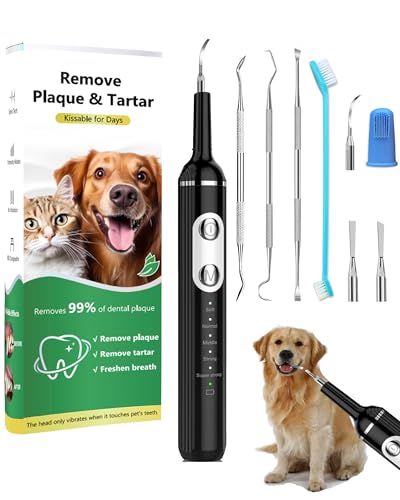




Applying a soothing gel designed for humans directly onto a canine’s oral tissues is not advised. Many of these gels contain ingredients that could be harmful to pets, leading to potential adverse reactions. Instead, opt for products specifically formulated for animals, ensuring safety and effectiveness.
When my furry friend was dealing with oral discomfort, I learned the hard way about the importance of using the right products. I tried a human oral gel, only to discover later that it contained substances unsuitable for my pet. This experience taught me to always consult with a veterinarian before trying any new treatment.
If your companion is experiencing issues such as gum irritation or teething pain, consider natural remedies or vet-approved options. Many veterinarians recommend certain gels or pastes that are safe and effective for alleviating oral discomfort in pets. Always prioritise your pet’s health by seeking professional advice when in doubt.
Understanding the Ingredients in Bonjela
Before considering any oral gel for a canine’s mouth, understanding its components is crucial. The main active ingredient in the gel is cetylpyridinium chloride, known for its antiseptic properties. This compound helps to alleviate discomfort by reducing bacteria in the mouth. However, it’s essential to note that this ingredient is primarily intended for human use.
Another significant element is benzocaine, a local anaesthetic that numbs the area upon application. While this may provide temporary relief for humans, its safety in pets is questionable. Benzocaine can lead to serious side effects, including methemoglobinemia, a condition affecting the blood’s ability to carry oxygen.
Additionally, the formulation often contains flavouring agents and preservatives, which may not be suitable for a canine’s digestive system. Some flavourings, such as artificial sweeteners, can be toxic to animals. Therefore, understanding each component is vital before considering any medicinal product for furry companions.
Always consult a veterinarian before applying any product designed for humans to a pet’s mouth. They can provide tailored advice based on the specific needs of your animal, ensuring their health and safety remain a priority.
Risks of Using Bonjela for Dogs
Applying this oral gel for humans on a pet’s mouth brings several potential dangers. The primary concern is its active ingredients, particularly benzocaine, which can cause serious side effects in some animals. Benzocaine may lead to methemoglobinemia, a condition that reduces the blood’s ability to carry oxygen, resulting in lethargy, blue-tinged skin, and difficulty breathing.
Allergic reactions are another risk. Dogs can react unpredictably to substances intended for human use, leading to swelling, itching, or gastrointestinal upset. Even a small amount might trigger an adverse response, especially in sensitive breeds.
Ingestion of excess gel poses a threat as well. If a furry companion licks off too much from the applied area, it might cause toxicity, leading to symptoms like vomiting, drooling, or even seizures in severe cases.
Use of this product without veterinary advice can mask underlying health issues. What seems like a simple sore may indicate a more serious problem requiring professional intervention. Relying on over-the-counter solutions could delay necessary medical care, potentially worsening the condition.
Consulting a veterinarian before considering any human products for a pet is crucial. They can recommend safer alternatives tailored to a furry friend’s specific needs, ensuring both safety and well-being.
Alternatives to Bonjela for Canine Oral Care
Natural remedies can be a great option for managing oral discomfort in pets. One effective alternative is using coconut oil. Its antibacterial properties help soothe irritation and promote healing. Just apply a small amount directly to the affected area. My own furry friend seemed much more comfortable after a few applications.
Herbal Options
Chamomile tea is another gentle remedy. Brew a tea bag, let it cool, and use a clean cloth to apply it to the mouth region. This method worked wonders for my pup during teething. The calming effects of chamomile can ease discomfort and reduce inflammation.
Veterinary Products
Specialised gels and sprays designed for animal use are available at pet stores or through veterinarians. Products containing aloe vera can be soothing and safe for oral application. Always check labels for pet-specific formulations. Consulting with a vet before using any new product ensures safety and effectiveness for your pet’s specific needs.
Regular dental care, like brushing with pet-safe toothpaste, is also crucial. Incorporating dental chews into your pet’s diet can help maintain oral hygiene while providing relief from discomfort. Keeping up with routine vet check-ups will help catch any potential issues early.
When to Consult a Veterinarian for Dog Gum Issues
Seek veterinary advice immediately if you notice any signs of discomfort or abnormalities in your pet’s oral health. Common indicators include excessive drooling, difficulty eating, bad breath, or visible inflammation. These symptoms can signal underlying problems that need professional assessment.
Signs Indicating a Need for Professional Help
- Swelling or redness in the oral cavity.
- Persistent bad breath that doesn’t improve with routine care.
- Loss of appetite or reluctance to chew.
- Visible plaque or tartar build-up.
- Behavioural changes, such as irritability or withdrawal.
Conditions That Require Immediate Attention
- Gingivitis or periodontal disease.
- Oral tumours or growths.
- Infections that could spread to other parts of the body.
- Trauma from chewing on hard objects.
Regular check-ups can help prevent severe issues. Consult your vet for the best oral care products tailored to your pet’s needs. If your furry friend requires a diet to support weight gain, consider looking into the best canned dog food for weight gain. Proper nutrition plays a pivotal role in maintaining overall health, including oral hygiene.






